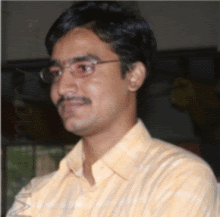What inspirations can startups derive from World chess champ, Viswanathan Anand? Patience? Consistency?
Well, chess is more than a mind game and here are Vishy’s golden tips that can be applied to any startup/business:
Don’t get too absorbed in the game. A lot of chess players get too absorbed in the game, and try to get to the bottom of it. But, that’s essentially a distraction.This may fly in the face of perfectionists — it’s not the perfectionists who get the market share, but those who give the right stuff at the right time.
Tension helps you concentrate and be alert. Feel the pressure, but don’t worry about things you can’t control: Tension helps you concentrate well. Being relaxed may be dangerous.
Know what your goals are: Seeking perfection may be a distraction: In chess, you have to learn what your goal is. Win the game, score points. It is a fascinating game and you can get lost in it. But the goal is not to make the perfect move, not to get into the bottom of a position. It’s simply to trick the opponent to win the game.
Strive for objectivity: You may be optimistic or pessimistic, but be realistic: You must know where you stand. First analyse your position and get an objective feel of it. Objectivity is a face you show to yourself. Be merciless with yourself.
Know your opponent: What is his goal, what are his favourite lines, is he deviating, why? Look beyond the board: Chess is all about applying game theory. You always think in terms of what your opponent will do, how he will respond. Again, in chess, most people specialise in something.
Nobody does everything. Understanding that is important. If your opponent does something out of his normal range, ask why? And the answer could be —he’s now trying to specialise in a new area; he’s trying to expand his game; his favourite line, at the moment, is in trouble and he’s not done repair work or he could be bluffing.
Analysis and sharpen intuition: Intuition is often used as a substitute for calculation. If there is some move that’s winning, and you know it’s winning, that’s not intuition. Intuition is when you make leaps into the dark. But it’s very difficult to draw lines between intuition and strategic thinking. If you calculate a lot, even if you don’t get till the end, your guess is going to be better.
Expand your horizons: We discard the rubbish efficiently. But that rubbish is not all rubbish. There could be a lot of gems in that.
When you lose, move on to the next battle: Handling defeat is usually just impossible. It’s useful to learn to be disciplined and put it out of your head.
Subscribe to:
Post Comments (Atom)




No comments:
Post a Comment